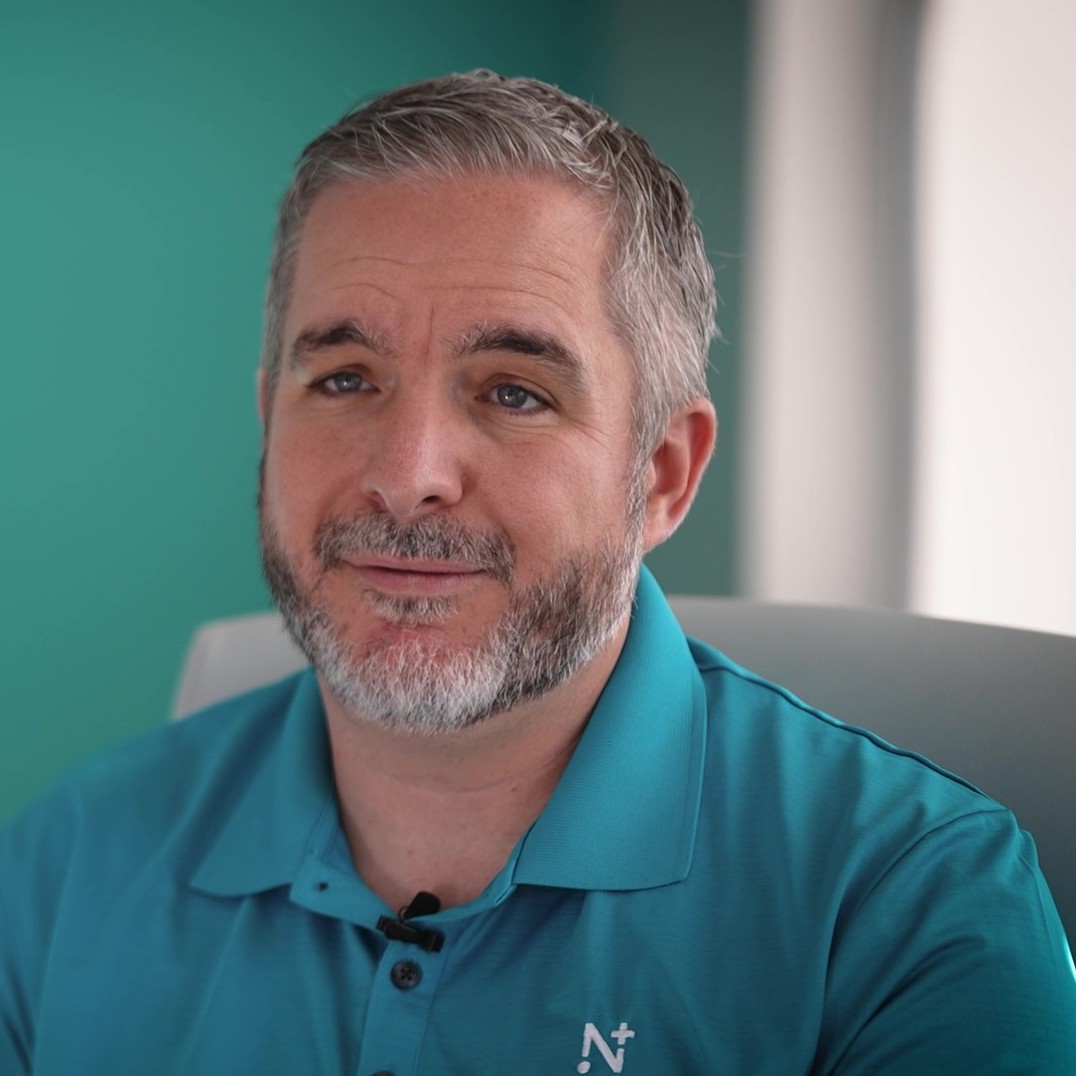
The common thread in my career has been to work hard, figure out insurmountable problems, and fight like hell to break established systems in order to create access for people typically left behind. Fortunately, we’ve been successful in hiring while building HireVue, and now for the last five years have been focused on healthcare with Nomi Health along with dozens of investments in other Utah companies trying to change the lives of the customers they are honored to serve.
I went to Westminster College in Salt Lake City, Utah and started my first company, HireVue, at age 20 while I was there. My co-founder at HireVue, Ryan Money, and I had to get internships to graduate. We convinced our professor that the ultimate internship would be starting a company—I’d sign off on his internship, and he’d sign off on mine.
It was 2004, the economy was terrible, and thankfully our professor let us run with the idea. He said, “Go for it.” We wanted to enter the Utah Entrepreneur Challenge and see if we could place, and we did—we won $1,000. We were bent on building HireVue, and the rest is history.
Back in 2004, hiring looked a lot different than it does today. HireVue introduced the concept of recorded job interviews with webcams where the job applicant would do the recorded interview on their own time, and their interview would be reviewed by the employer’s team later—imagine all of an employer’s interviews being asynchronous. This was back when TiVo was huge, so it was a big inspiration behind HireVue: record live job interviews like TiVo and watch them later at your convenience.
The second motivation for HireVue was the fact that Goldman Sachs had a huge presence in Utah, but they didn’t put any effort into hiring from Westminster with career fairs or sending recruiters to the campus. Basically, our college wasn’t on the “approved” list, so we didn’t have a shot. At HireVue, we believed people were more than their resumes, degrees from special schools, or GPAs—they were stories, ideas, and experiences. We thought any Westminster graduate could do just as well as any Ivy League student, which is what Goldman Sachs hired.
Our goal was to use video to make it easier for companies to get to know more people than they would through traditional hiring methods. At that time, the only alternative was to fly applicants in and spend time with them. As a result, companies were selective about who they’d spend time with. At HireVue, we wanted to make it easy to spend time with a lot of people, and as it turned out, when we did that and gave people a shot to answer questions on their own time and in a structured way, companies would hire people they never thought they would otherwise.
In a way, we led the revolution around breaking the degree and Ivy League requirements for a lot of major companies. And we helped give people the shot they wouldn’t have otherwise had—that was a ton of fun and really meaningful.
What is my opinion on college degrees after building HireVue? Unless you’re talking about high-level finance, attorneys, engineering, the sciences, or the medical profession, they’re largely irrelevant. I think a degree is the best indication that somebody demonstrated the ability to finish something, but the irony is, there are a lot of life reasons why they didn’t either. The conclusion I came to at HireVue is that, in many instances, college degrees don’t matter. You could have the best degree in the world, but if you don’t have the right attitude, you aren’t hungry, you don’t want to learn, or you don’t want to work with other people, guess what? That degree is going to be valueless. In other words, a degree is not a requirement for someone to be successful in a job.
About 10 years ago, we did a lot of work at HireVue on what drove actual performance. We’re not talking about hiring medical doctors but up- and down-the-street roles in a company, whether it’s customer service, sales, or project management. What we learned, especially for early career professionals in their 20s, what that the greatest indicator of success came down to a simple question: How old were you when you got your first job, and why?
Imagine you have two job applicants who are 24 years old. One has a wonderful degree and the other doesn’t. You ask the degree person how old they were when they had their first job, and they say, “This is my first job. I wanted to get an advanced degree.”
Then, you ask the other person. They say, “I may not have a fancy degree, but I got my first job at age 12 mowing lawns, and I also did this and that.” The employer says, “Oh, you’re entrepreneurial.” The job applicant says he worked at a dry cleaner and a restaurant serving tables, etc. He’s 24 and he has 12 years of work experience. He knows what it means to manage a schedule and receive a paycheck.
We actually applied that to professional athletes and it was the same thing. There were common attributes around individuals knowing how to work. Do they work well with others? Do they know how to handle conflict? Do they know how to manage a paycheck? Imagine a professional athlete coming out of college and going into the NFL, and the first time they’ve ever received a paycheck is the first week they get paid as a star athlete. If you had your first experience at 14 rather than 24, you’d have 10 years of life experience understanding what that meant.
Source link
